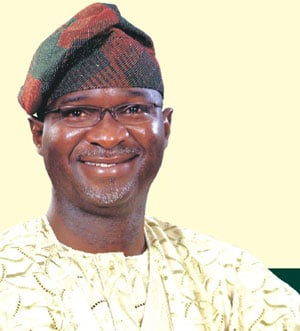The Nigeria-American Chamber of Commerce (NACC) says the 14 percent tariff the United States placed on imports from Nigeria presents opportunities for the country’s solid minerals and agricultural sectors.
Sheriff Balogun, president of the NACC, spoke on Friday during an interview aired on Channels Television.
On April 3, US President Donald Trump announced sweeping global tariffs on all imports into the country, slamming 14 percent on Nigeria.
Commenting on the development, Balogun said the trade tariff is an opportunity for Nigeria, especially in sectors where the country has an advantage.
Advertisement
“We have a lot of energy minerals, minerals like lithium, cobalt, tantalum, manganese. And these are critical minerals that are needed in the energy sector, we call them energy minerals,” Balogun said.
“So it provides an opportunity for us to look at our tariff levels at 14 percent. So if we add value to what we have and are able to export this, we’ll have an advantage over countries whose tariffs are much higher than what we have.
“And those are some of the countries that are exporting these critical minerals to the US, so that gives us a comparative advantage.
Advertisement
“Agriculture for one, which provides a larger employment for us, and we’re blessed with arable land that we have a lot of agricultural products that are needed.
“What we need to do is to add value to this, get them into finished products and semi-finished products and take advantage of that.”
‘NIGERIA CAN NEGOTIATE 14% US TARIFF’
Balogun said Nigeria can negotiate the 14 percent tariff just like other countries are making the approach to negotiate.
He further said gaps in other countries with higher US imposed tariffs on imports could be covered by Nigeria.
Advertisement
“Our trade deficit with the US is not so much, so it gives us room to be able to negotiate and have a balanced and win-win trade situation,” he said.
“We can also collaborate in setting up cross-border processing for some of the products that we have here. We can send them in there, process, re-export and then take advantage of that.
“Mexico supplies a lot of agricultural products to the US, and you can see the tariff level that is pretty high, very high.
“So with what we have now, all we need to do is step up our game and be able to move into that gap that we created as a result of what is happening between the US and Mexico.
Advertisement
“You look at Vietnam, where the imposed tariff is as high as 68 per cent; there are products there that Nigeria has, that Vietnam has, that we can take advantage of and enter into the markets.
“But generally, it’s a wake-up call for us also to look at what we are doing holistically, and see how we’ll be able to make export more competitive, provide the right infrastructure, and if that is in place—power, good roads, logistics, our port services, ensuring that we can get our products into the ports at the right time to be able to meet shipments, the deadlines, and all of that.
Advertisement
“So those are some of the areas that we need to improve on and then take advantage of what this tariff regime presents to us.”
‘14% TARIFF PRESENTS OPPORTUNITY FOR NIGERIA TO PROCESS GOODS’
The NACC president said the trade tariff also tells Nigeria that it needs to look at processing some of the goods it exports and developing internal consumption.
Advertisement
He said if Nigeria is exporting goods and faces barriers, those goods are hindered, while noting the need to develop internal consumption.
“Nigeria is a huge market in itself, and some of these products, and I can give a specific example of cocoa,” Balogun said.
Advertisement
“The cocoa sector is huge, several billions in terms of the complete value chain. But what Nigeria is earning from it by exporting just raw cocoa beans is insignificant compared to the whole value chain of the export.
“If we have a culture of consumption in Nigeria, which other countries have done, you probably even have to have a reversed situation, or probably we need to even import cocoa pods to be able to process and provide cocoa.
“Cocoa powder, cocoa drink can be integrated into the school feeding programmes, which provide nutrition, the valued and needed nutrition to our children and the population.”
He said Nigeria needs to focus on both exports and developing internal capacity to consume, adding that the country must have purchasing power to take full advantage of opportunities, requiring a holistic approach.
The NACC had announced plans to celebrate its 65th anniversary on April 12, with Balogun’s inauguration as 20th president as the highlight.







